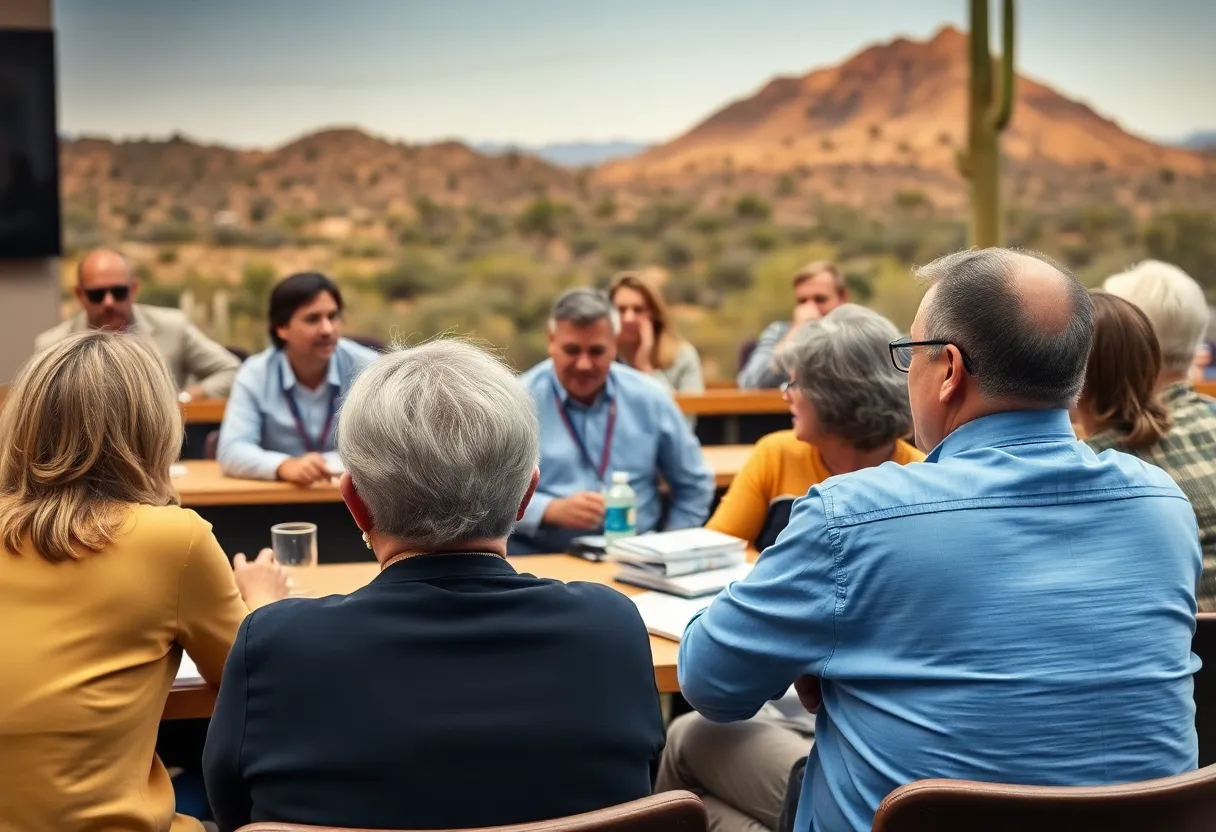News Summary
The Tucson City Council unanimously voted to block Project Blue, a proposed data center project, due to concerns over its water and energy usage. The decision halts plans for the facility, which would have consumed as much water as four golf courses. Despite projected economic benefits, public opposition highlighted environmental risks, leading the council to terminate ongoing work with the developers and to develop new regulations for future data center proposals.
Tucson, Arizona – The Tucson City Council unanimously voted to block “Project Blue,” a proposed data center project, due to significant concerns over water and energy usage. The decision was made on Wednesday, halting plans for the facility to be constructed on 290 acres in southern Arizona, adjacent to the Pima County Fairgrounds.
In order for the data center to proceed, it required both a development agreement and the annexation of land, which needed approval from Tucson officials. Prior to this decision, the Pima County Board of Supervisors had given their consent for the sale of the land to facilitate the project.
Public opposition to Project Blue was notable, as many residents voiced their concerns at council meetings. Issues surrounding high water and energy consumption were highlighted by Councilmember Kevin Dahl, emphasizing the project’s potential environmental impact. The plans indicated that the data center would consume as much water as four golf courses, raising alarm among community members.
Project Blue was associated with Amazon Web Services (AWS), although representatives stated that no firm commitments or agreements were in place regarding the project. The developers, Beale Infrastructure, projected that the data center would generate approximately $250 million in tax revenue, in addition to creating 3,000 temporary construction jobs and 180 permanent jobs, with an average annual salary of $64,000.
Despite the anticipated economic benefits, criticism persisted. Councilmember Nikki Lee expressed the community’s distrust in both government and technological advancements, which contributed to the backlash against the proposal. Concerns regarding the sustainability of the project were echoed by Ward 1 Councilmember Lane Santa Cruz, who pointed out that the construction jobs would be temporary, while long-term employment opportunities would be limited.
To mitigate water usage, developers had suggested constructing an 18-mile pipeline to bring reclaimed water for cooling systems. Initially, the data center would rely on drinkable water, but it would transition to reclaimed water once the pipeline became operational, expected within two to three years.
This proposed project faced severe criticism during public meetings, with residents asserting that establishing data centers in Arizona’s delicate desert environment posed risks to local resources. Following their decision, the Tucson City Council instructed staff to terminate any ongoing work with Beale Infrastructure and to develop new regulations for future data center proposals in the region.
The No Desert Data Center Coalition celebrated the council’s decision as a significant victory for local residents, reaffirming their commitment to oppose any similar initiatives in the future. This decisive action demonstrates the growing concerns over sustainable development in environmentally vulnerable areas, highlighting the need for thorough evaluation of future projects that may affect community health and resources.
Deeper Dive: News & Info About This Topic
- Arizona Central
- KGUN 9
- Newsweek
- Tucson.com
- Fox Business
- Wikipedia: Data Center
- Google Search: Data Center Sustainability
- Google Scholar: Data Centers Environmental Impact
- Encyclopedia Britannica: Data Center
- Google News: Tucson Project Blue

Author: STAFF HERE PHOENIX WRITER
The PHOENIX STAFF WRITER represents the experienced team at HEREPhoenix.com, your go-to source for actionable local news and information in Phoenix, Maricopa County, and beyond. Specializing in "news you can use," we cover essential topics like product reviews for personal and business needs, local business directories, politics, real estate trends, neighborhood insights, and state news affecting the area—with deep expertise drawn from years of dedicated reporting and strong community input, including local press releases and business updates. We deliver top reporting on high-value events such as the Waste Management Phoenix Open, Cactus League Spring Training, and Arizona State Fair. Our coverage extends to key organizations like the Greater Phoenix Chamber of Commerce and Visit Phoenix, plus leading businesses in technology and healthcare that power the local economy such as Intel and Banner Health. As part of the broader HERE network, including HERETucson.com, we provide comprehensive, credible insights into Arizona's dynamic landscape.





